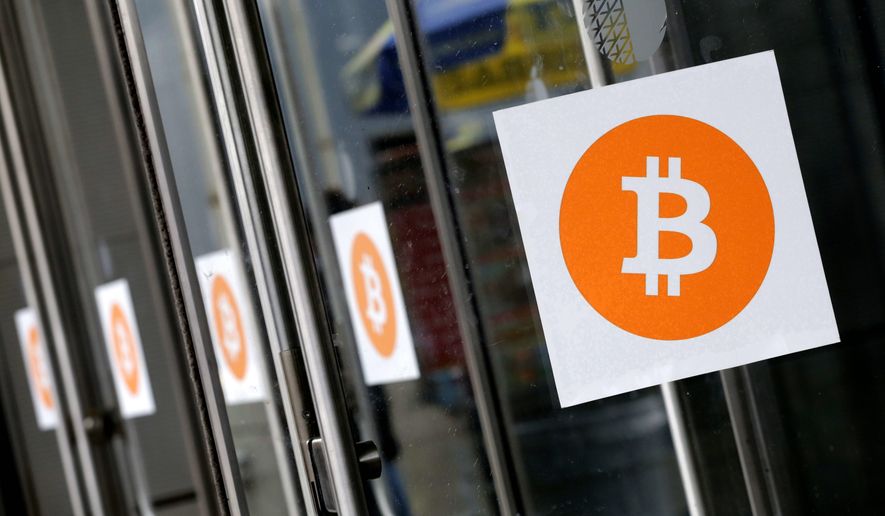North Korea may be turning to the shadowy internet currency bitcoin to get around increasingly intrusive U.S.-led sanctions barring its access to the world banking system and fund its missile and nuclear programs, financial experts warn.
A recent private intelligence study detailed how the North Korean hackers have dramatically ramped up a bitcoin “mining” operation, and analysts say Pyongyang may be bent on using the elusive digital currency as a way to undermine U.S.-led efforts to financially isolate the regime of Kim Jong-un.
“North Korea using these technologies is not exactly a loophole to the sanctions — that could be overstating the power of bitcoin itself,” Yaya Fanusie, a former CIA counterterrorism analyst, told The Washington Times. “But you have a cat-and-mouse game evolving, and this is just the type of emerging technology that the [U.S. intelligence community] needs to develop expertise to understand.”
Mr. Fanusie noted that, despite its reputation, bitcoin transactions can still be tracked by international authorities.
But a second former U.S. intelligence official told The Times on Monday that the digital currency did present major new challenges for American officials seeking to cut off North Korea’s money taps.
“We’re good at tracking traditional banking, but bitcoin is not a Swiss bank,” said the former official, who spoke only on condition of anonymity. The U.S., he said, should not underestimate the North’s increasing hacking and online sophistication.
The bitcoin speculation comes amid rising tensions in the region, with the North Korean foreign minister telling reporters in New York that President Trump’s increasingly tough rhetoric and military moves amounted to a “declaration of war.”
Recorded Future, a private cybersecurity firm, issued a report last week that identified what it said was a major effort by the cash-strapped regime to subvert financial sanctions.
Under persistent U.S. prodding, the U.N. Security Council last month unanimously banned North Korea from exporting coal, iron, lead and seafood worth about a third of its total income from trade. Permanent Council members Russia and China — North Korea’s neighbor and main trading partner — backed the resolution.
Evading sanctions
Some U.S. officials subsequently griped that Beijing, which is widely considered to be Pyongyang’s main source of cash, may avoid actually imposing the new sanctions. But the Trump administration last week announced a new agreement with China to effectively halt all financial transactions between North Korean entities and Chinese banks.
Enter bitcoin.
Finance analysts now fear that Pyongyang has begun using hard-to-trace digital currencies to generate cash and buy goods. It’s still unclear how the sanctions on traditional banking channels would affect bitcoin. According to the Recorded Future report, North Korea witnessed “a dramatic spike in activity from May 17 to July 3” related to a bitcoin “mining” operation.
Recorded Future’s director of strategic threat development, Priscilla Moriuchi, told Voice of America in an interview, “Before then, I haven’t seen any activity indicating that [the North Koreans] were interested in bitcoin.”
A former NSA threat analyst, Ms. Moriuchi added that the North’s suspected bitcoin activity is thus far tiny — roughly $100,000 — but the potential exists for the cryptocurrency to generate major income.
The effort is likely being run by North Korea’s military or intelligence, or at least conducted with their knowledge, she added. The massive amount of internet bandwidth needed for the detected bitcoin activity would have been noticed by Pyongyang.
A creation of the digital age that reflects the libertarian impulses of much of the online community, bitcoins were launched in 2009 by a mysterious figure named Satoshi Nakamoto, who has never publicly come forward. Many analysts have suggested that he never existed.
The currency’s unique power comes from its independence from any individual government or central bank overseer. Unlike regular money, digital or cryptocurrencies are not connected to banks or governments and allow anonymous purchases or money exchanges completely outside the realm of banks, credit card firms or other third parties. Instead, the coins exist because users “mine” them by lending their computing power to verify other users’ transactions.
Mr. Fanusie, who currently oversees the Foundation for Defense of Democracies’ Center on Sanctions and Illicit Finance analysis team, is also credited with analyzing the first verifiable instance of a terrorist organization attempting to use bitcoin to raise funds.
He said North Korea’s long track record for seeking cash and new assets through illicit activity, including the drug trade, counterfeiting or other smuggling, means bitcoin was a logical next step.
“We are really talking about experimentation,” Mr. Fanusie said. “The [bitcoin technology] is still so nascent, state and nonstate actors are looking for ways to exploit it.”
• Dan Boylan can be reached at dboylan@washingtontimes.com.
• Guy Taylor can be reached at gtaylor@washingtontimes.com.




Please read our comment policy before commenting.